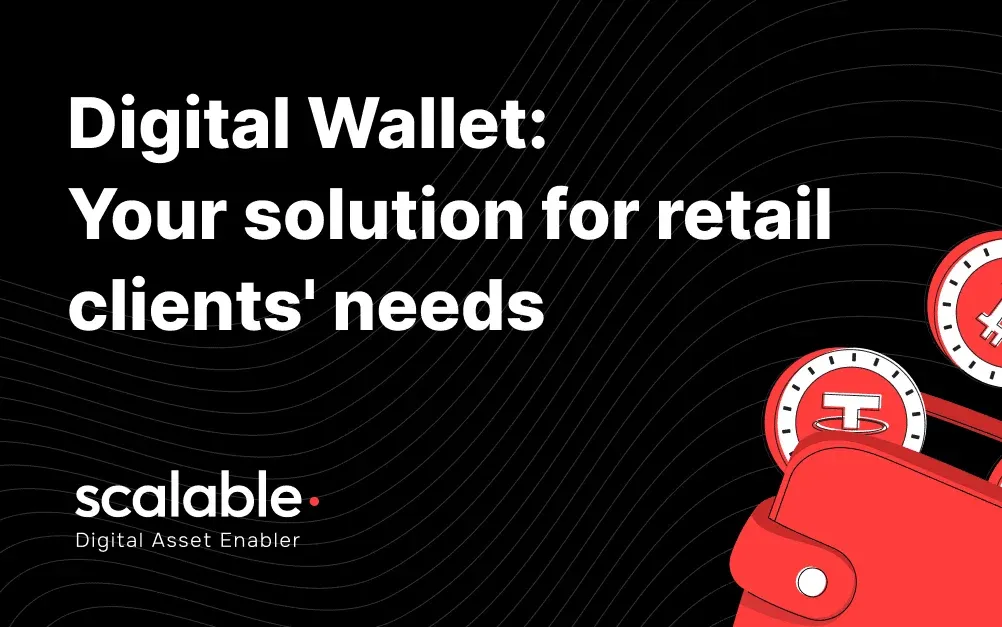Wallet-as-a-Service (WaaS): Building and Scaling Customized Digital Wallet Solutions
-1751029672219.png)
Wallet-as-a-Service (WaaS) - a cloud-based model allowing seamless integration of digital wallet functionalities via APIs. WaaS reduces complexity, accelerates deployment, and enhances scalability. Companies avoid extensive engineering efforts by leveraging WaaS providers to manage technical aspects.
Are you struggling with the technical and regulatory complexities of deploying your own digital wallet infrastructure? Leveraging WaaS can transform these challenges into strategic advantages.
Understanding Wallet-as-a-Service (WaaS)
Wallet-as-a-Service (WaaS) is a cloud-based service enabling businesses to quickly and efficiently integrate digital wallets using modular API-driven technology. This approach significantly reduces the need for specialized blockchain expertise.
Key components of WaaS include:
- API Integration: Enables simple and efficient interactions through RESTful APIs and WebSocket subscriptions, supporting tasks like creating wallets, managing transactions, and receiving real-time updates.
- Blockchain Node Infrastructure: Offers multi-chain compatibility, allowing seamless interaction with blockchain networks such as Ethereum, Solana, and Polygon.
- Security and Cryptography: Implements robust security measures, including Multi-Party Computation (MPC) and Hardware Security Modules (HSM), to securely manage and protect digital assets.
- Compliance and Regulatory Modules: Provides built-in AML/KYC modules that automate regulatory compliance, simplify audit processes, and ensure adherence to global standards.
- User Interface (UI) and User Experience (UX): Delivers customizable, user-friendly interfaces that enhance usability and ensure a smooth experience for end users.
Technical Building Blocks of WaaS: API-driven Wallet Infrastructure
WaaS relies heavily on APIs to facilitate interactions between wallet infrastructure and client applications. But what are the key concepts here?
APIs enable quick creation of wallets and secure generation of cryptographic keys for users. They handle secure transaction signing processes and broadcast transactions efficiently across supported blockchain networks. To provide access to wallet balances, transaction histories, and detailed transaction statuses in real time, API endpoints can serve as a solid ground.
Additional critical API considerations:
- API Rate-Limiting
- Authentication Mechanisms: OAuth 2.0 and API keys
- Versioning Strategies
Scalable Node Infrastructure
WaaS utilizes advanced blockchain node architectures to ensure reliability and scalability. Cloud-native Deployment, Auto-scaling Mechanisms, Multi-chain Integration Management - all are essential to achieve these goals.
Organizations can customize digital wallets using WaaS by integrating specific token standards like ERC-20, ERC-721, and ERC-1155. Additional features like staking, DeFi, and NFT marketplaces can also be included. Custom user experiences are created via comprehensive SDKs, simplifying integration and aligning closely with business requirements. WaaS APIs support efficient custom module integration through practical guidelines, code examples, and established best practices.
Scalability and Performance Management
Ensuring wallet scalability involves technical strategies such as deploying high availability (HA) architectures with redundancy to prevent downtime and maintain continuous service. Performance monitoring tools like Prometheus, Grafana, and CloudWatch track system metrics, enabling proactive management of resources and quick response to performance issues.
Managing peak traffic is handled by dynamic resource allocation and predictive auto-scaling, ensuring the infrastructure adapts smoothly under increased demand. To address bottlenecks, WaaS solutions optimize transaction throughput, implement caching mechanisms to enhance response times, and use robust load-balancing strategies for effective traffic distribution and optimal performance.
Challenges and Future Trends
Key challenges facing WaaS include managing interoperability across diverse blockchain protocols, addressing emerging security threats, and effectively handling vulnerability management. Additionally, staying ahead of evolving compliance and regulatory frameworks - such as MiCA, FATF, and SEC guidelines - is critical.
Future trends in WaaS technology include decentralized WaaS models enhancing security and user autonomy, AI-driven analytics for improved wallet management and user behavior prediction, and cross-chain liquidity solutions enabling seamless atomic swaps across blockchain networks.
Wallet-as-a-Service (WaaS) represents a strategic solution for enterprises aiming to quickly build scalable, secure, and customizable wallet solutions. With WaaS, companies can effectively navigate technical complexities, ensuring robust security and compliance without diverting resources from their primary business goals.
Scalable Solutions offers a technically robust and reliable WaaS platform, serving as a trusted partner in the deployment and scaling of next-generation wallet infrastructure. Explore Scalable Solutions’ Digital Wallet today by scheduling a demo, and discover how WaaS can empower your business to excel in the digital finance landscape.
